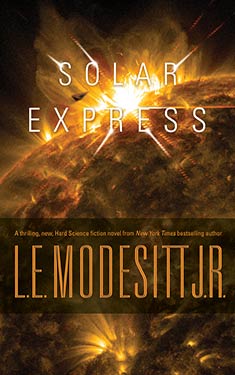Bandersnatch – Lewis & Tolkien as Writers in Community
 I’ve got to start with a misconception that people who don’t know artists or other creative people often have. Many people think that the creative process starts and ends in the space between the artist and the work. That is, in that space between the blank page and the writer, the blank canvas and the painter, or the raw stone and the sculptor. This is only partially true and this partial truth gives rise to the myth, yes Myth, of the writer in a lonely garret, the Eiffel Tower in the background, out the window. Yes, in that space is where everything collides in the struggle right then and there to create, but any artist will tell you that this point is only 50% of the process. (Some say more, some say less.) There is a wholly different side to the creative process which those who don’t know artists, know nothing about.
I’ve got to start with a misconception that people who don’t know artists or other creative people often have. Many people think that the creative process starts and ends in the space between the artist and the work. That is, in that space between the blank page and the writer, the blank canvas and the painter, or the raw stone and the sculptor. This is only partially true and this partial truth gives rise to the myth, yes Myth, of the writer in a lonely garret, the Eiffel Tower in the background, out the window. Yes, in that space is where everything collides in the struggle right then and there to create, but any artist will tell you that this point is only 50% of the process. (Some say more, some say less.) There is a wholly different side to the creative process which those who don’t know artists, know nothing about.
That is Bandersnatch: the other side where creativity is forged in the crucible of fellowship.
In terms of the 20th century, the Inklings, this select group of men, who met, talked, and critiqued each others work, has now become The Example for how a fellowship is supposed to work. Even Paris of Hemingway’s lost generation, with their salons, and creative minds from far more disciples, seems now a pale second place.
Bandersnatch takes us into this crucible, trying to reconstruct from a fly-on-the-wall perspective this extraordinary time and place. Glyer is concerned with two fundamental questions: What did they talk about when they discussed the various works in progress? and What difference did it make within the books they were writing?
These are simple but seemingly unanswerable questions. Until now, of course. It is positively amazing what a determined scholar can find, especially going into a headwind of opinion from friends, mentors, teachers, that these questions Can Not be answered, so one shouldn’t waste one’s time trying.
Thank goodness she didn’t listen to those little minds. The end result was the book The Company They Keep: Lewis, Tolkien as Writers in Community. Bandersnatch then is not the Good Parts version, the dumbed down for a general audience version, nor a more intimate treatment with the author as narrator version, although all three facets do come into play. Think of Bandersnatch as a distillation with an eye on bringing the practice, that is, the wisdom of The Inklings, into our own lives as creative people.
What did they talk about? What difference did it make? The answer is everything and the other answer is that it made a huge difference. You’ll have to get the details from the book!
For me, the book highlighted not just the critique part of fellowship, but also the resonating aspect, that is, someone who gets it like you get it. If, say, two anime Otaku (obsessed fans of Japanese animation) get together and one of them says “SAO” that’s all they need to engage in a 40 minute conversation concerning the minutia of “SAO” that is as incomprehensible to an outsider as if the outsider was listening to two astrophysicists. From what Glyer has gleamed from The Inklings and from a lot of current research and thought on the subject, this resonating aspect by itself is huge, in terms of creativity.
Glyer goes on to illuminate a half dozen other forms of feedback within the fellowship and what effect it had on the individual writers and their work. She also, fortunately or unfortunately, illuminates what ultimately sunk their ship: what went wrong and why it was their undoing. This, of course, should be a lesson for our own creative process.
If you are a Lewis or Tolkien fan, what are you waiting for? Go and get this book. If you don’t care for those two but the issues surrounding creativity, or writers in general are of interest, this book offers plenty for you as well.
Highly recommended.
Solar Express – Three Views
 A Futurist, a UFO researcher and a SF guy all walk into a bar carrying read copies of Solar Express. They sit down and get their drinks.
A Futurist, a UFO researcher and a SF guy all walk into a bar carrying read copies of Solar Express. They sit down and get their drinks.
SF: Well, what do you think?
They look at each other. No one says a thing for a few moments.
SF: That bad?
F: Well… I’m trying to think of something nice to say.
UFO: Don’t bother.
F: The man knows hard science but he knows jack about Futures.
SF: Is he supposed to? Would it help the story?
F: It would be nice if a major SF author knew a little bit of Future Studies. Just the basics, mind. I don’t think that’s to much to ask. But this, hell, this is the worse kind of SF. The stuff I can’t stand.
UFO: Here, here.
F: He simply runs a few of today’s trends out, establishes his baseline and then that’s it. A few trends do not a future make. What about all the other trends and how they interact with the trends he’s using? Nothing. Besides, it’s never the baseline.
SF: Is that a Futures’ secret?
F: No it isn’t. It’s what they teach first day. When you run today’s trends out, you get the baseline, but the answer you’re looking for is never the baseline. I’d be shocked if it was.
SF: So you don’t like his world construction.
UFO: Pathetic.
F: Exactly. There’s no change. His politicians are jackasses, the politics are so brazenly normal it’s shocking. Post-docs as wage slaves, on the back side of the moon. (Disgust noise.) At least the background glimpses of the society we got in Clarke’s Rama were different.
SF: That’s hardly being fair.
UFO: That’s life.
F: Let’s just say you were reading something from a hundred years ago or so, something Victorian. And they made a big deal about a woman not being a virgin….
SF: Isn’t that a plot point in Tess… something…
UFO: D’Urbervilles. Yeah, it was.
F: Fast forward a hundred years or so to us, and that doesn’t mean a thing. Victorian lit’ is quaint. Human, certainly, but quaint, and concerned with things we don’t care about. And we’re supposed to believe that there’s been no changes like that in the hundred years out to the time of the novel? I think it makes for very uneven reading.
SF: But that really wasn’t the point.
F: Point or not, the fact it’s not there, not even really considered, is important. The society in which this novel is set, is an important point, but he is either not interested in talking about it or does not have the talent to talk about it. What we get is a blasé “they’re just like us” and he moves on to com’ chatter between a shuttle and station control.
SF: That did get a little repetitive, didn’t it? That and the intricacies of station repair. Life and science in space can be quit tedious. So… what else?
UFO: From my perspective, the whole thing was based on a faulty premise. They’re here. The best minds in the field think they’ve always been here. And it’s only Human arrogance, stupidity and lies that we believe otherwise.
F: Now who’s being harsh?
UFO: He’s in a cul-de-sac. Especially a technological one. The way he talks about space travel is quaint.
SF: Quaint?
F: His expression of space travel is a projection forward from the Now, but if the Now is based on a lie or faulty data, then the projection forward is useless. It can’t be a useful baseline if it’s based on faulty data. It’s gibberish.
SF: What’s the lie you mentioned?
UFO: We’ve known since the 50’s that you can go into a lab and break all three of the so-called Newtonian laws. Period. This mean they’re not laws of any sort just approximations of reality under certain conditions. Change those conditions enough and these so called laws stop working.
SF: Ouch.
UFO: Since the government has know that for close to 70 years, space travel as we know it from NASA is a dog ‘n pony show for the rubes. The lie is, that’s the way it has to be.
SF: And we’re the rubes.
UFO: Exactly. The lie covers the existence of what can be called the technology of the gods. We barely survived the nuclear era with that level of technology. Do you really think we could survive “the death star has cleared the planet” levels of technology?
F: The lie is a good thing then?
UFO: Hell no.
SF: So, we’ve got faulty premises and a background society that’s just like us…
F: And M.A.D. too.
SF: Mutual Assured Destruction. Tediousness at times. What else? I’ll add that there were passages that I got bogged down in with all the science and techno babble.
UFO: I thought the arc of the story itself was really obvious. I kept waiting for something to pop up that wasn’t what I expected. I wasn’t expecting monsters or any dribble like that but… you know… observation, mission, solve some problems, get back safely, win the girl and a medal. No surprises.
F: I thought the relationship between those two was… quaint. Almost like something out of the 19th century. They wrote long letters of encouragement to each other. How nice and romantic. That just strikes me as unrealistic. We’re a hundred years out. Moore’s law for computation power seems to have stalled or slowed precipitously. Hell, IBM’s Watson is practically on the level of the COFAR M.I. today. And everyone seemed to have skimped on bandwidth for reasons which seemed either lame or nonexistent.
SF: We’re back to world construction from the trends.
UFO: And those Hotnews! summaries. They reminded me of Ruby Rhod from The Fifth Element.
F: Yeah. Him. If that’s where Humanity gets it’s news, no wonder that society was M.A.D.
SF: That’s scarcely a criticism since the same can be said of our own.
F: I actually thought that stuff was quite tame. Compared to what one might get if you ran today’s crap that passes for news forward by a century.
SF: I liked the quotes.
F: But they’re so applicable to our own society as well.
UFO: That can’t be much of a criticism since one can read the political musing of Cicero and they’re equally valid.
SF: Do we know if he made those quotes up, like Herbert did all the time, or did he get them from somewhere? I assumed he did the Herbert thing. It’s a writing technique I’ve always liked.
F: No idea.
UFO: I assumed it was the author speaking to us through the quotes.
The conversation stalls for a moment as another round of drinks is brought over.
SF: I think we’re being a bit harsh. Isn’t there anything to like in this book?
F: That, I think, is the real problem. It’s solid work, if you just read it and that’s it.
SF: In the moment, it’s fine. But once you start picking at what he’s doing and why, it comes apart.
UFO: You’d have to discount fundamental scientific advancement being in a cul-de-sac since Einstein.
F: And discount the inconsistent use of the trends in your world building…
SF: Nothing memorable about the characters either…
UFO and F glance at each other, knowingly.
F: You’re not going to bring Gally into this are you?
SF: I was not. That’s really not fair. But a fairer comparison would be there’s no Paul Maud’Dib, no Sylia Stingray, no Hal 9000, no Major Motoko Kusanagi, no Deckard. There’s no one here I’m going to remember beyond next Tuesday. No one unforgettable.
F: What’s the name of the captain who leads the team onto the ship in Clarke’s original Rama book? Don’t…
F points at UFO who was about to answer.
SF: I don’t remember.
F: What’s the plot for that book?
SF: Space ship comes cruising in to use the Sun for a gravitational turn. An Earth ship can intercept, so it does, dead silence and alien stuff. Happy endings for first contact; no fatalities. Ship leaves them in the stellar dust.
UFO: The humans in that story seemed saner? more intelligent? less fracked up? than this story.
F: Less petty. But the point was, you don’t remember the fine details of Rama, so you won’t remember the fine details of this either. But a one sentence summery in 20 years? Probably. Like I said, it’s solid work, if you don’t think about it.
UFO: Safe too.
F: Very safe. It’s works on the assumption that we’re just going to teeter along, creating and solving our problems, just getting by, muddling through like we’ve always done. That is a highly dubious assumption.
UFO: And there’s that bullheaded drum beat about how far away other civilizations are, and not going faster than light speed, and why would aliens bother with this backwater. Hideously stupid.
F: Those three things are all assumptions.
SF: And if all three are wrong…can one write great SF?
F: I don’t think so. You can write solid and safe but not great.
SF: Because greatness usually breaks molds, upsets apple carts, and goes places never gone before.
UFO: Can’t accuse this book of that. (Laughs.)
They grow quiet for a moment, finishing the current round of drinks.
SF: We’ve not even skirted around the big lie which sets the book in motion.
UFO: You cannot militarize space. Bull.
SF: The minute I read that statement, which was right after the back cover of the book, I thought we were already in trouble. Another quaint idea.
F: Another assumption about how the world works which, unfortunately, isn’t true.
SF: We’re all adults here. We know N.A.S.A. was incorporated under the D.O.D. which mean anything they do…
UFO: Or find…
SF: …can be classified under national security concerns. That’s how it always starts.
UFO: The Snowdons of the world aside…
F: The exceptions which prove the rule…
UFO: …you can keep secrets. And there are many many secrets in this country.
SF: It seems to me you can militarize space all you want, you just can’t tell anyone, publicly acknowledge that you’re doing it.
UFO: Plausible deniability. Exactly. You need secrets being kept, black projects up and running, with compartmentalization of those projects.
F: Oh my, none of that around here.
UFO: And boatloads of money.
SF: How many times has a D.O.D. head made the trek up the hill in the last 30 years and said…(In a passable Goofy voice) Garsh, hyuk, we seem to have misplaced several trillion dollars. Hyuk.
UFO: More than once.
F: If we have secret space stations…
UFO: Or bases on the moon…
F: Who’s going to know it in the civilian population…? And spill the beans…? And be believed…?
SF: Still, it’s a nice idea.
UFO: I’m too old for nice ideas. Democracy is a nice idea too.
SF: Let’s definitely not go there. That certainly wasn’t part of the novel. I’m really bothered by a feeling that for all our harping, I think you’re right. It’s a solid novel.
F: Except for…
SF: Except for everything which we don’t like about it. I finished. Does that count?
UFO: Do you want a reward? Milk and cookies, perhaps?
F: I see no contradiction in the idea that a solid work can also be complete B.S. Yes, it is forgettable, isn’t it?
SF: Only a handful of books published each year, or maybe each decade, have any staying power at all as the generations pass.
UFO: This isn’t one of them.
SF: So, are we agreed? Solid, Safe and Forgettable.
After a pause, they all nod. They get up to leave.
SF: I’m off to sell my copy.
F: I’m just going to donate mine to the YWCA’s used book sale.
UFO: I have a plant stand that needs a support under one leg….
SF: I thought you’d give it to one of your friends upstairs.
UFO: That’s were I got mine originally. Some of them read a lot.
They all laugh before dispersing into the night…
Vampire Manga 101: Shiki
 What is it with writers in general and Horror writers in particular and their obsessiveness concerning small towns? They make them seem like places where every other house is full of mystery, monsters, the deranged, or weirdness run amok. Whether it’s King in Maine, Lynch in the Northwest, or Ono in Japan, on either side of the Pacific, writers love to make stuff happen in small towns. Shiki (Shi Ki), which can be translated as “Corpse Demon”, is no exception.
What is it with writers in general and Horror writers in particular and their obsessiveness concerning small towns? They make them seem like places where every other house is full of mystery, monsters, the deranged, or weirdness run amok. Whether it’s King in Maine, Lynch in the Northwest, or Ono in Japan, on either side of the Pacific, writers love to make stuff happen in small towns. Shiki (Shi Ki), which can be translated as “Corpse Demon”, is no exception.
Shiki can be described like this:
The story takes place during a particularly hot summer in the nineties, in a small quiet village called Sotoba. A series of mysterious deaths begin to spread in the village. At the same time, a strange family has moved into the long abandoned Kanemasa mansion. Dr. Toshio Ozaki, head of the only rural hospital in Sotoba, initially suspects an epidemic. But as the investigations continue with the help of his old friend Muroi Seishin, who is the village priest, the deaths begin to pile up; they becomes convinced that the undead are plaguing the village. A young man named Natsuno Yuuki, who hates living in the village and only wants to leave, begins to suspect he is still being pursued by a girl who has already died.
Contemporary Fantasy Manga 101: Death Note
 “Power is the ultimate aphrodisiac.” — Henry Kissinger
“Power is the ultimate aphrodisiac.” — Henry Kissinger
I give you the case of one Light Yagami. He lives in the Kanto region of Tokyo. His academic talent puts him in the top 1%, in his age group, for all of Japan. He has great prospects for University and careers. The problem is that he’s a young man; he’s bored; he feels contempt for his society and how it functions. Since his father is in the police, the underbelly of Japanese society is very obvious to him. He feels a great yearning to help his society, punish wrongdoers, but he feels helpless. He’s rebellious; his smarts make him arrogant; he’s searching for a cause and his place in the world, as all young men do.
Watch out, he’s going to get his wish.
This is what Viz says about Death Note, Volume 1:
Light Yagami is an ace student with great prospects – and he’s bored out of his mind. But all that changes when he finds the Death Note, a notebook dropped by a rogue Shinigami death god. Any human whose name is written in the notebook dies, and now Light has vowed to use the power of the Death Note to rid the world of evil. But when criminals begin dropping dead, the authorities send the legendary detective “L” to track down the killer. With “L” hot on his heels, will Light lose sight of his noble goal… or his life?
Light tests the boundaries of the Death Note’s powers as “L” and the police begin to close in. Luckily Light’s father is the head of the Japanese National Police Agency and leaves vital information about the case lying around the house. With access to his father’s files, Light can keep one step ahead of the authorities. But who is the strange man following him, and how can Light guard against enemies whose names he doesn’t know?
Contemporary Fantasy Manga 101: Umineko – When They Cry
 So, can a fantasy set in the mid 80’s qualify for the historical fantasy sub-genre? Now, if it was the early seventies, certainly. But eighties? Probably.
So, can a fantasy set in the mid 80’s qualify for the historical fantasy sub-genre? Now, if it was the early seventies, certainly. But eighties? Probably.
Not that it matters. Umineko, also informally known as the Saga of the Golden Witch, is just plain good. Which is the important part.
Yen Press has this to say about Volume One:
Each year, the Ushiromiya family gathers at the secluded mansion of its patriarch, the elderly Kinzo. It has been six years since Battler joined his cousins at the annual event, but their happy reunion is overshadowed by worsening weather and an eerie premonition from his youngest cousin-not to mention their parents’ feud over the inheritance. Battler doesn’t hold much stock in dark omens, nor does he believe the tales of the witch rumored to have given his grandfather a fortune in gold…and who walks the halls of the mansion to this day… But when the eighteen family members and servants are trapped on the island by the raging typhoon, the grisly events that follow leave Battler shaken to his core. Is one of his relatives desperate enough to kill for the family fortune? Or is this the work of the Golden Witch?
18 people trapped on an island due to a typhoon. They’ve come to discuss the inheritance, since the elder Kinzo is dying. (He’s had three months to live for over a year.) Some members of the family really don’t get along with each other and some of the members of the family certainly could use their share (or a larger one) of the family fortune right about now.
Contemporary Fantasy Manga 101: Durarara!!
 It sounds just like the setup for an old joke. A high school gang leader, the information broker, and a Dullahan all meet up at the Russian sushi place… which is considered neutral territory because nobody messed with Simon. You know, Simon, he’s a 6’4” black Russian who brooks no arguments. Russian mafia connections? Probably, but at least he thinks conflict is not good for the digestion.
It sounds just like the setup for an old joke. A high school gang leader, the information broker, and a Dullahan all meet up at the Russian sushi place… which is considered neutral territory because nobody messed with Simon. You know, Simon, he’s a 6’4” black Russian who brooks no arguments. Russian mafia connections? Probably, but at least he thinks conflict is not good for the digestion.
It’s got to be a joke, right? Nope. This could actually happen in the wonderfully self-contained world that is Ikebukuro, our stage for Durarara!!
This is what Yen Press says about volume one:
At the invitation of an old school friend, introverted high school student Mikado Ryuugamine, yearning for a life less ordinary, makes his way to Tokyo. His destination: Ikebukuro, a hotbed of madmen living most unusual lives. On his first day there, Mikado encounters a cast of characters so colorful, the rich hues of his rural hometown pale in comparison! And as if the naive stalker chick, the high school senior obsessed with the rather creepy object of his affections, the hikikomori genius doctor, the hedonistic information dealer, the strongest man in all of Ikebukuro weren’t enough…Mikado also chances upon a sight that leaves him rubbing his eyes and scratching his head — the Black Biker, who is black as night from bodysuit to license plate, soundlessly weaving through the streets like a figure out of an urban legend. Who is this “Headless Rider” on the jet-black metal steed!? And why does it seem like Mikado’s already gotten himself neck-deep in the insanity that is the norm in his new home!?
And what a first day it was.
Horror Manga 101: The Ring
 If you’re a horror fan, just the title alone should bring to mind the Verbinski film of 2002 or the original Japanese movie Ringu (Ring) from 1998. The original books by Koji Suzuki have circled the globe, capturing the attention of horror fans everywhere. And since this franchise came from Japan, a manga was almost unavoidable. I think the manga can stand alone, so it deserves our attention.
If you’re a horror fan, just the title alone should bring to mind the Verbinski film of 2002 or the original Japanese movie Ringu (Ring) from 1998. The original books by Koji Suzuki have circled the globe, capturing the attention of horror fans everywhere. And since this franchise came from Japan, a manga was almost unavoidable. I think the manga can stand alone, so it deserves our attention.
This is what Dark Horse has to say about Volume One:
Journalist Kazayuki Asakawa’s investigation into the sudden deaths of four teenagers leads to an isolated cabin containing a videotape warning of death in seven days unless certain, now missing, instructions are followed.
I’m not a horror movie person, but even I’d heard of the cursed videotape that causes death. Since that’s all I knew, I had no preconceived notions about the plot of the manga.
We start with gossip, rumor, people talking about a weird tape, that kills. This was the kind of rumor that seems to come from nowhere and is everywhere almost instantly. Watch the tape and you’ll die, in seven days. As a reporter, Asakawa, gets curious about this rumor since she knew a teen who died. A bit of digging and it turns out that four teens, all friends, all together seven days ago, all died on the same day, within minutes of each other.
Fantasy Manga 101: Attack on Titan
 There must be nothing quite like having a red hot manga. Not since Kubo’s Bleach in 2001 has the manga world been this excited. Hajime Isayama, the mangaka, is rock’en the manga world right now. You can tell from the manga best seller lists here and in Japan. Attack on Titan routinely has multiple issues in the top 20. You know something is hot when an English translation house starts pumping out volumes on a monthly basis to feed the ravenous hunger of the American Otaku and to bring us up to speed on the Japanese release schedule.
There must be nothing quite like having a red hot manga. Not since Kubo’s Bleach in 2001 has the manga world been this excited. Hajime Isayama, the mangaka, is rock’en the manga world right now. You can tell from the manga best seller lists here and in Japan. Attack on Titan routinely has multiple issues in the top 20. You know something is hot when an English translation house starts pumping out volumes on a monthly basis to feed the ravenous hunger of the American Otaku and to bring us up to speed on the Japanese release schedule.
This is what Kodansha says about Attack on Titan:
In this post-apocalytpic sci-fi story, humanity has been devastated by the bizarre, giant humanoids known as the Titans. Little is known about where they came from or why they are bent on consuming mankind. Seemingly unintelligent, they have roamed the world for years, killing everyone they see. For the past century, what’s left of man has hidden in a giant, three-walled city. People believe their 100-meter-high walls will protect them from the Titans, but the sudden appearance of an immense Titan is about to change everything.
Let the Carnage begin.
Vampire Manga 101: Chibi Vampire and Tsukuyomo Moon Phase
 Attack of the Mega Cute Vampires – Double Feature. Start!
Attack of the Mega Cute Vampires – Double Feature. Start!
Our first feature is Chibi Vampire and here’s what Tokyopop said about it.
Karin is a cute little girl who also happens to be a vampire…with a twist. Once a month, she experiences intense bleeding from her nose–we’re talking gushers! In other words, she’s a vamp with blood to spare, so rather than stealing blood from humans she actually gives her blood to them. If done right, this can be an extremely positive experience that benefits the “victim” as much as the vampire. The problem is that Karin never seems to do things right!
Karin’s family, of course, are “normal” vampires. Karin is their precious little ugly duckling of a vampire. Crosses and mirrors don’t phase her. [Groan.] She works at a Chinese restaurant that uses lots of garlic. [Moan.] Karin gives people her blood when she bits, instead of taking theirs. [Doh!] And she can even go out in the daylight. [Shudder.] Karin is just trying to enjoy a peaceful high school life, with a part time job. Karin needs that job since who else is going to pay the electric bill? Her family sees in the dark far better than she does. But the blood, her blood, gets in the way. Not only does that time of the month (yeah, I know, only a female mangaka can get away with that) intrudes on her life but her blood seems to act up when she’s around the new transfer student, handsome but poor Kenta Usui. What is going on? Gusher!
SF Manga 101: Eden – It’s an Endless World
 In an earlier blog, I mentioned that it was my intention to peruse the endless manga bookshelves to find the best SF and bring it to your attention. And by doing this, hopefully some quality SF manga would earn places right next to their top level USA SF counterparts.
In an earlier blog, I mentioned that it was my intention to peruse the endless manga bookshelves to find the best SF and bring it to your attention. And by doing this, hopefully some quality SF manga would earn places right next to their top level USA SF counterparts.
To my own chagrin, I’ve discovered I didn’t need to look any further than my own bookshelves for this title. For a variety of reasons, none of which are any good, Eden made it’s way onto my shelf, but not onto my reading pile. That has changed. Eden is a manga we should pay attention to.
This is what Dark Horse has to say about the first volumes of Eden: It’s an Endless World.
Eden Volume One is both a brilliant love song to the post-apocalyptic survival genre and the beginning of a deep exploration on man’s role in the natural order. In the near future, a large portion of humanity is wiped out by a brutal, new virus that hardens the skin while dissolving internal organs. Those who aren’t immune are either severely crippled or allowed to live with cybernetically enhanced bodies. Taking advantage of a world in chaos, a paramilitary force known as the Propater topples the United Nations and seeks world domination. Elia, a young survivor searching for his mother, travels towards the Andes Mountains with an artificially intelligent combat robot. When he encounters a group of anti-Propater freedom fighters, a maelstrom of unique characters unfolds. Graphic, cyberpunk, and philosophical, Eden is a place where endearing heroes face a constant struggle for survival and violent surprises wait around every corner!



















 Full Details
Full Details


